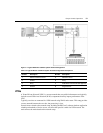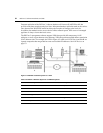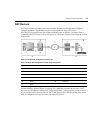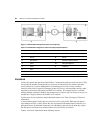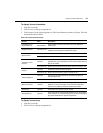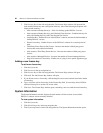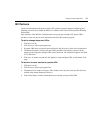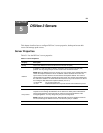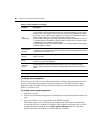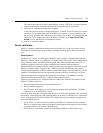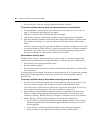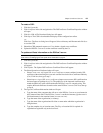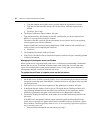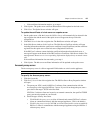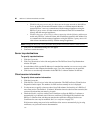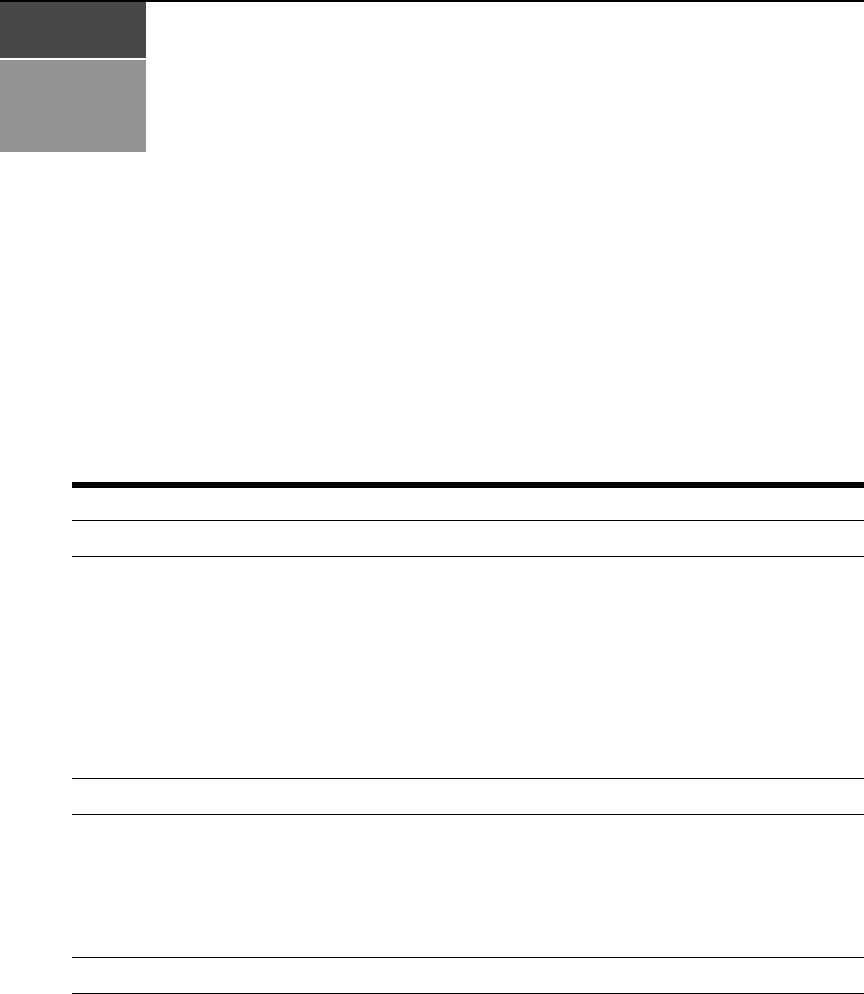
59
CHAPTER
5
DSView 3 Servers
This chapter describes how to configure DSView 3 server properties, backup and restore hub
servers and manage spoke servers.
Server Properties
Table 5.1 lists the DSView 3 server properties.
Table 5.1: Server Properties
Property Description
Identity Name of the DSView 3 server and the server’s role (hub or spoke).
Network
IP address (*) and port used by clients to access the server using the HTTPS (SSL)
protocol. You may change the port number used for the HTTPS connection.
NOTE: When the DSView 3 server is running on a Linux system, the IP address field may
contain the loopback address. If this is not desired, edit the /etc/hosts file on the Linux
system. Add a new line above the line that defines the loopback address. The new line
should contain the IP address, followed by the host name. For example, the following new
line adds the IP address 172.30.20.206 for the host name sun-jcv-fc3.avocent.com, above
the existing line that defines the loopback address (127.0.0.1).
172.30.20.206 sun-jcv-fc3.avocent.com
127.0.0.1 localhost.localdomain sun-jcv-fc3.avocent.com localhost sun-jcv-fc3
Certificate DSView 3 server certificate presented to DSView 3 software client web browsers.
Proxy Server
When the Avocent proxy server is used, DSView 3 software client KVM and serial session
requests are sent through the DSView 3 server rather than directly to the KVM switch or
serial console appliance, which prevents the exposure of the internal address of the
managed appliance. You may change the proxy server configuration.
NOTE: EVR1500 environmental monitor, DSI5100 IPMI and generic appliance sessions
are not sent through the DSView 3 server, even when the proxy is enabled.
SSH Server Enables/disables the SSH server and specifies the port it uses.



